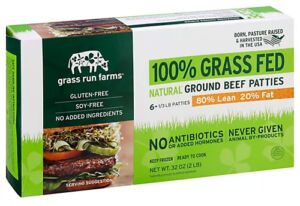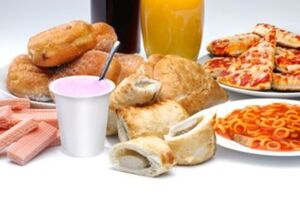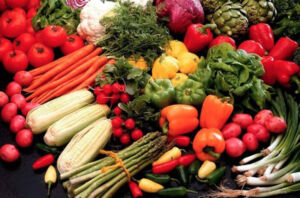I recently read an article written by David Seaman, DC. I found it to be informative and educational. Enough so that I wanted to share the article with you.
David Seaman wrote this article in November of 2015. Was he before his time in these findings or has it been and a problem for a long time and continues to be. I would say both. We here at the clinic have been educating the public on nutrition for many years. So, these findings are not new or outdated.
Read his article below:
On September 16th, CNN Wire posted a report about potential antibiotic levels in meat and chicken in twenty-five fast food restaurants. The article has been picked up by many online news services, so the full text can be easily read. The restaurants were graded A to F, just as we were graded in school. Restaurants receiving F’s failed the antibiotic criteria. Chipotle and Panera Bread received scores of A while Chick-fil-A received a B. This suggests that we might want to only eat at Panera Bread and Chipotle.
Here are the restaurants that should be avoided unless serious changes are made to the quality of their food. Duncan’ Donuts and McDonalds received a grade of C (but to this day we severely question the quality of McDonalds food). The following restaurants received an F.
 Subway, Wendy’s, Domino’s, Starbucks, Olive Garden, Papa John’s, Taco Bell, Burger King, Denny’s, Pizza Hut, KFC, Applebee’s, Sonic, Chili’s, Jack-in-the-Box, Arby’s, Dairy Queen, IHOP, Outback and Little Caesar’s.
Subway, Wendy’s, Domino’s, Starbucks, Olive Garden, Papa John’s, Taco Bell, Burger King, Denny’s, Pizza Hut, KFC, Applebee’s, Sonic, Chili’s, Jack-in-the-Box, Arby’s, Dairy Queen, IHOP, Outback and Little Caesar’s.
I realized that chicken and red meat were both considered: however, chicken has never been demonized in the fashion suffered by red meat. Consider that red meat has been demonized for decades, being indicated for causing both heart disease and cancer. If this was true, why did the Native Americans, who lived on buffalo for generations, not die off due to heart disease and cancer? Cancer and heart disease are fundamentally modern conditions, which means indicating red meat is short-sighted at best.
 For decades, the US public has been conditioned to fear red meat and bacon, in the context that all red meat and bacon are the same. What about grass fed meat? What about cattle and pigs that are ethically raised and free of antibiotics? Applegate Farms is an example of a company that appears to produce animal products in a fashion that renders them similar to those that would be found in the wild. I mention Applegate farms because their products are readily available in health food stores and regular supermarkets. To find animal products that are grass-fed and free of antibiotics, interested readers can search two websites: eatwild.com and americangrassfed.org
For decades, the US public has been conditioned to fear red meat and bacon, in the context that all red meat and bacon are the same. What about grass fed meat? What about cattle and pigs that are ethically raised and free of antibiotics? Applegate Farms is an example of a company that appears to produce animal products in a fashion that renders them similar to those that would be found in the wild. I mention Applegate farms because their products are readily available in health food stores and regular supermarkets. To find animal products that are grass-fed and free of antibiotics, interested readers can search two websites: eatwild.com and americangrassfed.org
Wild game and grass-fed meat are very different from feedlot animals that are fed grains, animal products, hormones and antibiotics. My recommendation is to watch the movie Food, Inc., which vividly depicts the problem with animals raised by the food industrial complex.

If you choose not to eat red meat, do it for reasons that are not based on fear. Wild game and grass-fed meat do not cause heart disease, cancer or any other disease, so the avoidance of animal products should not be based on the false notion that they do.
 Consider the absurdity of focusing on red meat as a primary health risk in the American diet. The average American consumes approximately 60% of their calories from sugar, flour, and refined oils (it should also be noted that fast food chains deep fry many of their foods in these refined oils). Compared to this calories, Americans consume virtually no vegetables, fruits, roots tubers ( Root tubers are thickened, fleshy roots that act as storage organs for nutrients), and nuts; but somehow, red meat is blamed for our ailing health as a nation. This is absurd!
Consider the absurdity of focusing on red meat as a primary health risk in the American diet. The average American consumes approximately 60% of their calories from sugar, flour, and refined oils (it should also be noted that fast food chains deep fry many of their foods in these refined oils). Compared to this calories, Americans consume virtually no vegetables, fruits, roots tubers ( Root tubers are thickened, fleshy roots that act as storage organs for nutrients), and nuts; but somehow, red meat is blamed for our ailing health as a nation. This is absurd!

I personally love bacon, so I eat it as much as I want AND I do this in the wake of a diet that contains vegetation (pounds per day) and no sugar, flour, or refined oils. If I wanted to, I could eat bacon -wrapped filet mignon, chicken or scallops everyday with pounds of vegetation because there is no evidence that this approach to meat eating is remotely unhealthy.
About the author:
David R. Seaman, DC, MS is a professor of Clinical Sciences at national University of Health Sciences in Pinellas Park, Florida. He is a consultant for Anabolic laboratories and has been writing and lecturing about the topic of diet, inflammation, pain and chronic diseases for more that 20 years.
